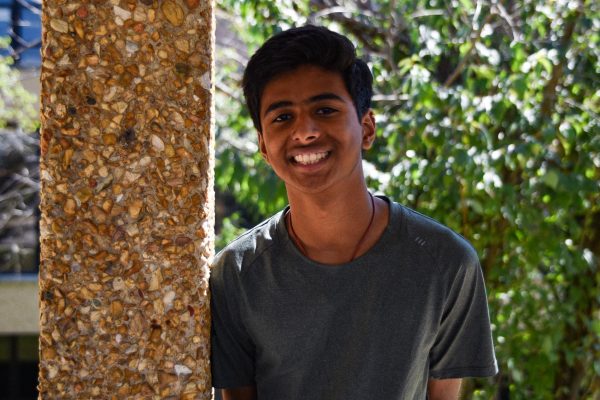The U.S.Supreme Court ruled on two cases earlier this year involving rights on digital space. On October 31, the Court heard arguments on two cases — Lindke v. Freed and O’Connor-Ratcliff v. Garnier — involving government officials blocking private citizens from their personal social media accounts. These cases have inspired students to take a stance on some of the individual rights in the Constitution and look at how they apply in real life and online.
The U.S. Constitution serves two primary purposes: designing a government and placing limits on it to prevent arbitrary rule. The Constitution guarantees every American fundamental rights and protection of life, liberty and property through its amendments.
However, one of the Constitution’s most significant flaws when it was created was the provisions for slavery, which were ultimately ended through the Emancipation Proclamation on Jan. 1, 1863, and through the 13th Amendment in 1865.
“Obviously, the people who made the United States Constitution were flawed, but so are all of us. I’m not saying that to justify anything that they did, but if you look at what’s in there, they guaranteed a lot of freedoms to a lot of people, certainly not as many people as they should have,” junior Will Gonsior said. “But in many ways, it was a step forward. And it’s a document that continues to protect people to this day.”
For over 230 years, the Constitution has been the cornerstone for governance and rights. However, during this time, the landscape of the American lifestyle has changed drastically to include artificial intelligence, algorithmic decisions and social media. Today, people spend a significant amount of time, interactions and transactions online, making students wonder how the Constitution applies in today’s technological society and if it needs to evolve with time.
“I’m not an emotional guy with the Constitution, neither am I a Constitution expert. But I know, a good amount, and I don’t think our Constitution does [protect us] to the extent that we need it to yet. Because the Constitution isn’t really built for the internet,” Atkinson said. “Although [Constitutional rights] can be applied to the internet, it’s not always the same. And things get fuzzy on the internet and then bad outcomes can happen. So I think that there are some things that have to be changed.”
THE FIRST AMENDMENT
“When you start talking about the Bill of Rights, I think that it absolutely addresses the rights of citizens, specifically, the important right to freedom of expression as enumerated under the First Amendment,” Gonsior said. “I think [it] does a great job of protecting the ability for everyone to be who they are, both online and offline. And I think that it remains the best tool for protecting freedom of expression because it simply guarantees it everywhere. And I don’t see why you would need to change that.”
According to the American Bar Association, the First Amendment only limits governmental actors — federal, state and local — but there are good reasons why this may not be adequate in today’s society. Certain powerful private entities — particularly social networking sites such as Facebook, Twitter and others — can limit, control and censor speech more than governmental entities.
“On one hand, you can say that it’s not a government-owned platform. It’s a company, and so they presumably have the right to operate based on their own goals and values. They can just tell anyone to get out of there or potentially remove any content they wish to,” Atkinson said. “But at the same time, these social media platforms have become so gargantuan that they’re effectively a place where everyone in the world hears. So they need to carry more responsibility to protect people’s rights on their platforms, and the Consitution may need to step in.”
On Sep. 29, 2023, the Supreme Court agreed to decide whether state laws that seek to regulate Facebook, TikTok and other social media platforms violate the Constitution. The justices will review laws enacted by state legislatures and signed by governors in Florida and Texas that aim to prevent social media companies from censoring users based on their viewpoints.
“I think that big platforms like Instagram, Facebook [and] Twitter should be able to ban people within reason because if you’re posting dangerous or other horrible things that are clearly not allowed on the platform, you’re gonna get banned. But if you’re stating a political opinion, no matter how extreme it might be, under the First Amendment, I do believe that you should have the right to be there,” Atkinson said.
On the other hand, experts in the tech sector warn that creating such laws would prevent platforms from removing extremism and hate speech.
“I don’t think we need to add anything to the First Amendment, but I think we could change the way we enforce it,” Gonsior said. “All people have a protected right to freedom of speech, but if someone is being censored for something they have said, and their right is not being protected, the government needs to protect that and take action. The government has legal grounds to do that, even without changing the constitution.”
Section 230 of the Communications Decency Act provides immunity to online platforms from civil liability based on third-party content and for the removal of content in certain circumstances. The Act serves two purposes. First, it addresses unclear and inconsistent moderation practices that limit speech and go beyond the text of the existing statute. Second, it addresses the proliferation of illicit and harmful content online.
Earlier this year, in May 2023, The Supreme Court ruled on two cases, Google v. Gonzales and Twitter v. Taamneh, involving families of terrorism victims. The court opined that Google, Twitter and Facebook did not help foster the terrorist attacks.
“Technology companies [are] places for the exchange of ideas,” Atkinson said. “And if you give these people an inch, they can take a mile. If you give social media companies the power to go beyond that, it’s very hard to draw a line and say, ‘you can’t go beyond X point’ and then effectively legislate that.”
Drawing a line on free speech has been a constant debate both online and offline. The situation of free speech related to topics of terrorism, hate speech and crime can be clear-cut. However, there are situations where the protection cannot be guaranteed.
In June, the Supreme Court ruled against the Counterman v. Colorado case, revealing First Amendment limits on laws banning online threats. The case concerned Billy Counterman, a Colorado man who became obsessed with a singer-songwriter, sending her disturbing messages on Facebook.
“I think the songwriter should be able to block the fan and basically shut down on the direct speech between the two of them,” Gonsior said. “Because that’s not public speech, that is private speech. Even before the digital age, you can refuse to have a conversation with someone; that’s always been the case, and that’s always been protected. And blocking someone individually, one-on-one is a very different action than blocking someone from a public sphere like Twitter where you’re interacting with everybody.”
Another threat is misinformation and disinformation. According to the Brookings Institute, fake news and sophisticated disinformation campaigns are especially problematic in democratic systems. There is growing debate on how to address these issues without undermining the benefits of digital media. In order to maintain an open, democratic system, it is important that government, business and consumers work together to solve these problems.
“The conundrum that arises at the end of the day, you can’t censor anything for being misleading or even wrong content,” Gonsior said. “There are some big legal issues with removing something that somebody claims they believe, even if it’s wrong, and I think that, especially in states where they’ve legislated against it, you can’t do it. And that might hurt some people, but they should probably be finding more reliable sources of information. Until we change something, we need to work harder to find accurate information.“
THE SECOND AMENDMENT
According to the Washington Post, semiautomatic firearms technology didn’t exist in any meaningful sense in the era of the founding fathers. They had something much different in mind when they drafted the Second Amendment.
“I think that there are some changes that could be considered to the current Constitution and to its amendments based on the evolution of technology since the time the Constitution was written,” Gonsior said. “I feel like in the age of nuclear weapons, enumerating to all people the right to bear arms without making that more specific can be dangerous.”
In a digital world, arms can extend beyond physical weapons. Eric Rice, an expert in cryptography, argues that in a digital world, cryptography qualifies as a weapon, as the U.S. government has asserted for decades, and so deserves consideration for Second Amendment protection. Cryptography is “the art or practice of writing in code or cipher” to keep something secret. Although it is not new, it was previously restricted almost entirely to governments until the advent of computer systems. Because of the historic use of crypto in warfare to send coded messages, cryptographic devices, and software are considered munition according to the International Traffic in Arms Regulations (ITAR) and is regulated by the U.S. Department of State since the 1970s. However, today, almost every protected information online is encrypted, from passwords to financial information, such as banking and credit card data. Students in AP Computer Science are exposed to the basics of cryptography and have a similar stance on constitutional protection of cryptography
“Most of my phone data is encrypted and several messaging platforms I use have an end-to-end encryption feature which I like. I feel we would use more encryption apps in the future and possibly more at an individual level and if we use it to protect our own data, we need it to be protected from the government,” computer science student and senior Jason Tsao said.
THE FOURTH AMENDMENT
Regarding the freedom of privacy, the Fourth Amendment grants the right for people to be secure in their houses, persons, houses, papers, and effects against unreasonable searches and seizures.
“This is an important one, and I think it’s one that was violated with the Patriot Act, which has since been repealed. I think that people have a right not to be searched online, not have their private information looked through by anyone without a reasonable reason or without consent, including the government,” Gonsior said.
Although it is very easy to search and track someone online, the Fourth Amendment continues to protect people from government searches online and offline. United States v. Jones, was a landmark United States Supreme Court case in which the court held that installing a Global Positioning System (GPS) tracking device on a vehicle and using the device to monitor the vehicle’s movements constitutes a search under the Fourth Amendment and needs a warrant.
“First, I think people should take responsibility for keeping their activity or comments online private and be careful about what they post in public spaces. For example, on Discord, I should have the option to keep my stuff confidential if I want to, and I should take all the necessary steps to keep it private,” Tsao said. “Having said that, I see how Discord itself has access to everyone’s data no matter we choose to be private or public, and they could access all my private information if they want to. The same could be applied to the government [they could access any available information]. It is concerning that nothing is 100% private online, even if the user chooses to be, and I feel the current constitution leaves several questions unanswered on protecting our privacy online.”
ARTICLE III, SECTION 1
Article III, section 1 of the Constitution establishes and empowers the judicial branch of the national government. All the judges and the Justices of the Supreme Court are appointed by the President and confirmed by the Senate and are tenured for life.
“We should just have an equal number of Democratic and Republican justices. Or [appointing the judges] should be a nationwide vote,” Atkinson said. “It is not right that a position where we expect unbiased rulings [is] appointed by the president with a strong political inclination. Also, since the President is able to appoint Supreme Court justices, they can effectively be just another hand of the president. That’s against the checks and balances we believe our government is based on. And because there’s no term limit, even after the President leaves office, if that justice is still loyal to that former President, [the former president’s] power isn’t totally gone because of the Justice still there.”
One proposed solution is splitting up how justices are selected. Three justices would be appointed by a Democratic president, three appointed by a Republican president and three voted in by citizens.
“If we have to rely on political and presidential appointments, we divide justices equally among Republican and Democratic Presidents, [as well as] party and public voting, [something] like 3-3-3]. And definitely have term limits,” Atkinson said.
The debate on the terms of Supreme Court judges is also an ongoing one. Experts feel that longer terms have led to an increasingly political confirmation process and a court more likely to be out of touch with the general public.
“I do not think that we should institute term limits for Supreme Court justices because the intention behind the Supreme Court was that the views of the people on that court and
the era that they’re from would lag behind,” Gonsior said. “Being directly elected by the Senate and the President, they act as a check and balance and against having too much reform in any particular generation.”
ARTICLE II, SECTION 1 AND THE TWELFTH AMENDMENT
“Another important issue that needs to be considered for overhaul is our electoral college and the electoral process, to make it more fair and more equitable and proportionally representative,” Gonsior said.
The Electoral College is one of the most controversial processes in our democracy, according to the Brookings Institute. The process can lead to candidates who lose the popular vote being elected President of the United States. This has happened five times in American history, including in 2000 and 2016.
“[The Electoral College] protects smaller groups and less populated states, without which presidential election might depend only on who New Yorkers and Californians pick. Although I see the pros of the Electoral College, I would like a better system. In this technological age, we could leverage technology to help us create a better solution and a better way to represent all people,” Tsao said.
However, amending the Constitution is not easy. It has only happened 27 times in the last 229 years. Article V of the Constitution provides that an amendment may be proposed either by Congress with a two-thirds majority vote in both the House of Representatives and the Senate or by a constitutional convention called for by two-thirds of the State legislatures.
“Amendments to the Constitution are not needed,” Gonsior said. “However, continuous monitoring and regulation of emerging players and technology is necessary. And that can be done through legislation.”
Experts from Princeton University feel that the Constitution has withstood the test of time for over two centuries, and to ensure its continued longevity, citizens need to take a more significant role and become guardians of our Constitutional values.
“I agree that citizens need to be more willing to uphold the Constitution. Citizens can act as checks and balances on both advancing technology and the government,” Gonsior said. “Voting is the greatest check. [Voting] in all elections, especially in party primaries. Primaries often have more influence, even though they draw fewer votes. And then, the best way to check advancing technology is to limit the use of technologies that you don’t trust — create an incentive for companies to be safe.”




![Standing in Lambert Airport, French students smile for a photo before their flight. On March 10, the group of students began their 12-day trip to France, accompanied by French teacher Blair Hopkins and Spanish teacher Dominique Navarro. “The trip went smoothly. I think everybody enjoyed all three parts of it: Paris, Nice and the family home stay. The feedback I’ve gotten from all [of] the students has been positive, including several people already trying to plan a trip back to France,” Hopkins said.](https://pwestpathfinder.com/wp-content/uploads/2025/04/IMG_8146-1200x900.jpg)
![Latin students pose for a group photo in front of historical ruins in Italy. From March 13 to March 23, the Latin department traversed cities in Italy to immerse students in an educational experience of a lifetime. “I enjoyed being able to learn about the different cultures. [The trip] encouraged me to see other people's lifestyle and learn more about different histories,” senior Suraiya Saroar said.](https://pwestpathfinder.com/wp-content/uploads/2024/04/PXL_20240318_092633493.jpg)
![From Jan. 22 through Feb. 1, Parkway West High is displaying a wide array of art pieces made by students ranging from elementary to high school. All classes were represented on the displays in both the art wing and the main foyer of the school. “[Art] benefits me because in the middle of a busy day. I can just relax and have some fun doing art and it makes me happy. I think it's important that you show art in the art show so that people can get inspired by it and be inspired to create their own pieces; it’s really impactful,” sophomore Dhiya Prasanna said.](https://pwestpathfinder.com/wp-content/uploads/2024/02/image1-1200x800.jpg)
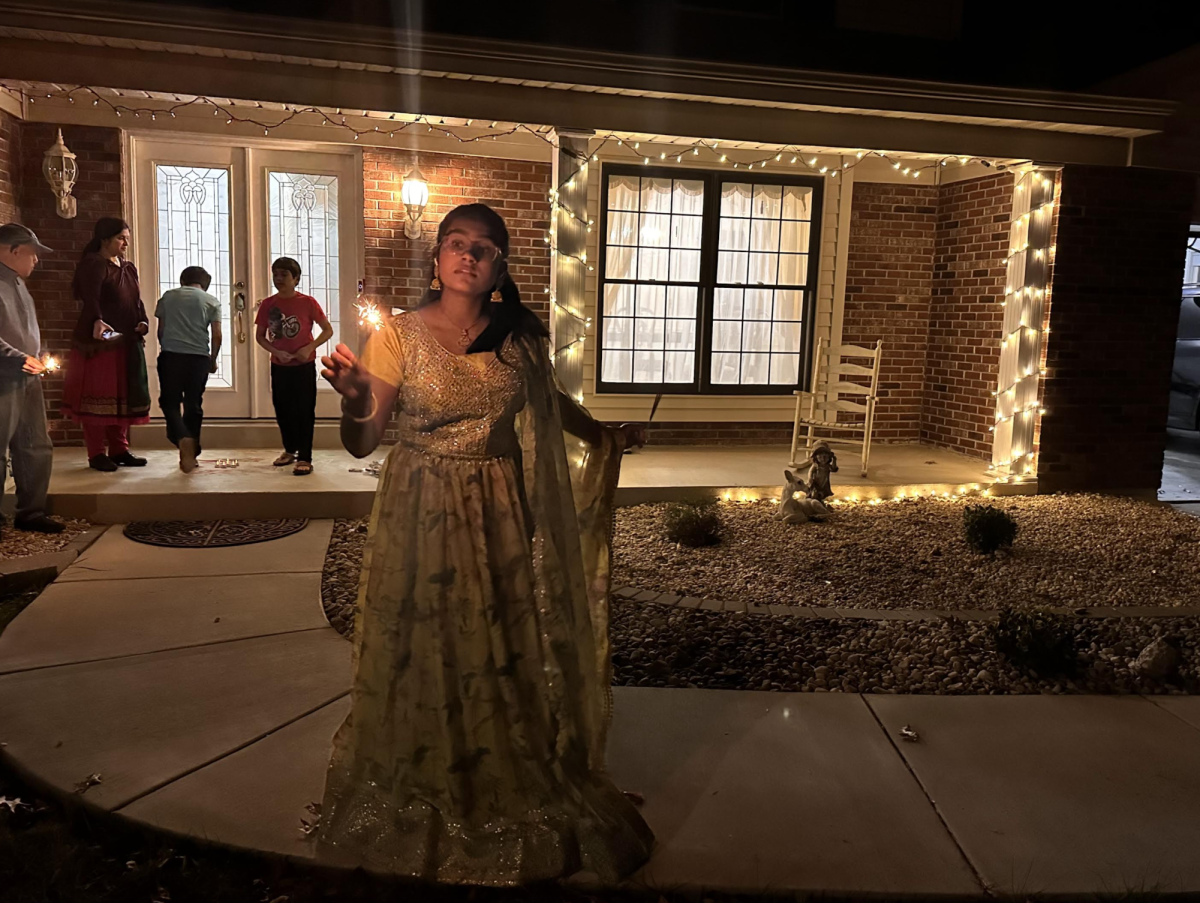

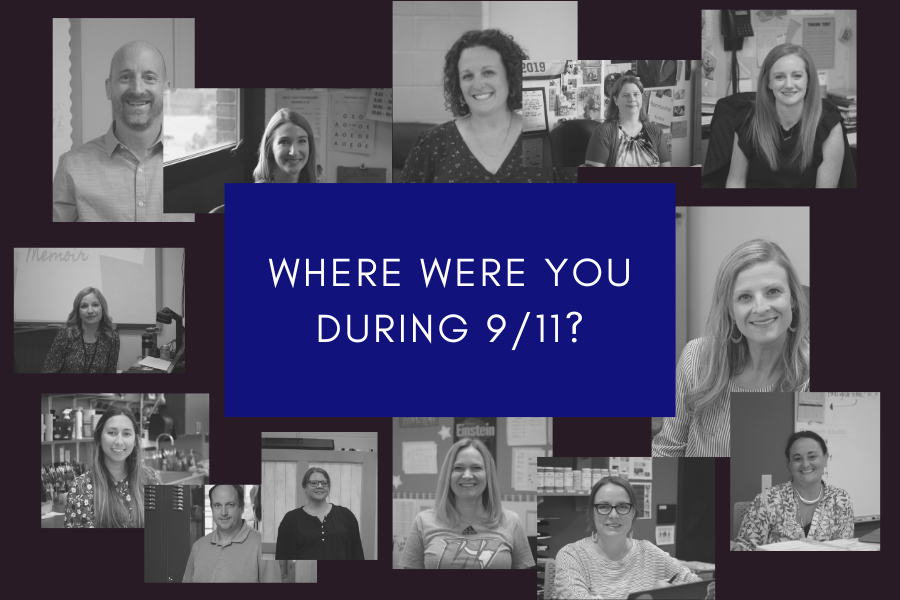
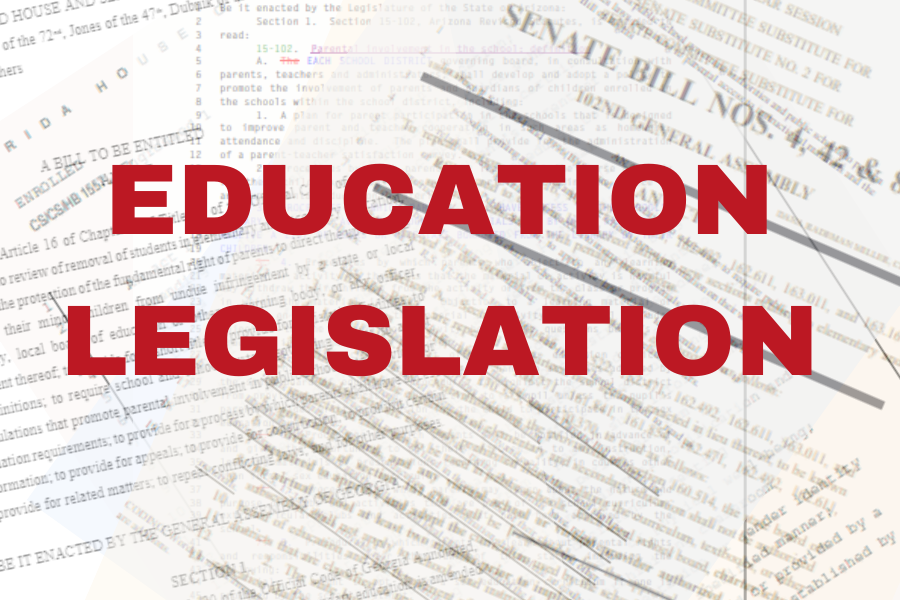




![Pitching the ball on Apr. 14, senior Henry Wild and his team play against Belleville East. Wild was named scholar athlete of the year by St. Louis Post-Dispatch after maintaining a high cumulative GPA and staying involved with athletics for all of high school. “It’s an amazing honor. I feel very blessed to have the opportunity to represent my school [and] what [it] stands for,” Wild said.](https://pwestpathfinder.com/wp-content/uploads/2025/05/unnamed-6-1200x714.jpg)
![The Glory of Missouri award recipients stand with their certificates after finding out which virtue they were chosen to represent. When discovering their virtues, some recipients were met with contented confirmation, while others, complete surprise. “I was not at all surprised to get Truth. I discussed that with some of the other people who were getting the awards as well, and that came up as something I might get. Being in journalism, [Fellowship of Christian Athletes and] Speech and Debate, there's a culture of really caring about truth as a principle that I've tried to contribute to as well. I was very glad; [Truth] was a great one to get,” senior Will Gonsior said.](https://pwestpathfinder.com/wp-content/uploads/2025/04/Group-Glory-of-Missouri.jpg)
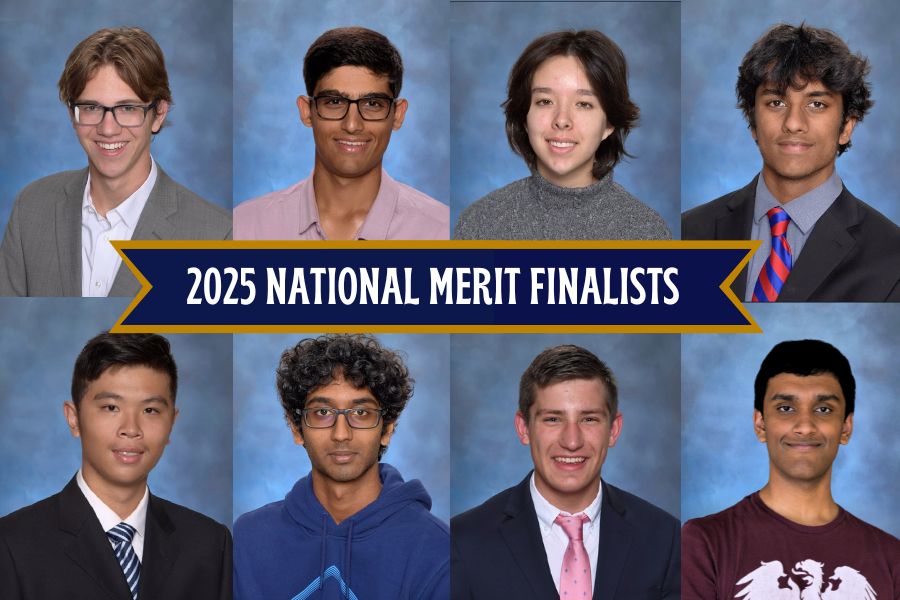
![Freezing in their position, the Addams Family cast hits the “rigor mortis” pose after cast member and senior Jack Mullen, in character as Gomez Addams, calls out the stiff death move. For the past four months, the combined company of cast members, orchestra pit, crew and directors all worked to create the familial chemistry of the show. “I’m excited for [the audience] to see the numbers, the music, the scenes, but I also just love all the technical aspects of it. The whole spectacle, the costumes, makeup and the people that put in the work backstage in order to make the show successful on stage. I’m excited for people to see and appreciate that,” Mullen said.](https://pwestpathfinder.com/wp-content/uploads/2025/03/DSC0116-1200x800.jpg)
![This is the first year that the Parkway West Science Olympiad team competed at regionals. Team member and junior Anish Jindal competed in several events including Chem Labs, Experimental Design and Geological Mapping, earning top five placements in several events. “Compared with some of the other academic competitions at West [that can be] difficult to figure out how to get better, [Science Olympiad] is a lot more inclusive, having a broad group of people with different specialties,” Jindal said.](https://pwestpathfinder.com/wp-content/uploads/2025/03/DSC0391-1200x800.jpg)
![Raising his arm for a high five, freshman Abram Brazier plays with Early Childhood Center students during his first visit of the semester. Brazier joined his assigned class during their designated outdoor time. “[Child Development] gives me experience with how to talk [to] kids. We read them a book so knowing how to talk to them [was helpful]. Most of the [preschoolers] just came right up to us [and] played around,” Brazier said.](https://pwestpathfinder.com/wp-content/uploads/2025/01/gallery2-1200x800.jpg)
![Adding a tray of canned corn to the pile, junior Michael Collop assists in transporting donations for the Holiday Food Drive. The event, hosted schoolwide from Dec. 10-17, raised over 5,000 food items to deliver to the Parkway Food Pantry, helping several families in need. "[The drive] is a great thing for us to do because you're giving to those who are less fortunate, and it helps provide for people who can't provide for themselves. [The] competition is always fun, too. It was fun to be in [social studies teacher Jeff] Chazen’s class, because he always gets worked up over [the competition]. He made it exciting, and was always convincing us to turn in cans for the drive,” Collop said.](https://pwestpathfinder.com/wp-content/uploads/2024/12/feature-photo-unsung-2.png)
![Principal John McCabe announces that Jeffrey Chazen has won Teacher of the Year. Chazen was discussing freedom of speech with his AP Government class when the door opened and administrators rushed in. “[I was] extremely happy and humbled, but mostly shock[ed]. I've been here longer than any other teacher, so I know most of the people on the list of Teachers of the Year, and they are amazing teachers themselves,” Chazen said. “It's just nice to be on the list with them, including [social studies teacher Kristen] Collins, who is the only other social studies teacher who has won Teacher of the Year. It was nice to bring something back to the social studies department.”](https://pwestpathfinder.com/wp-content/uploads/2024/12/DSC_0021-1-2-1200x801.jpg)

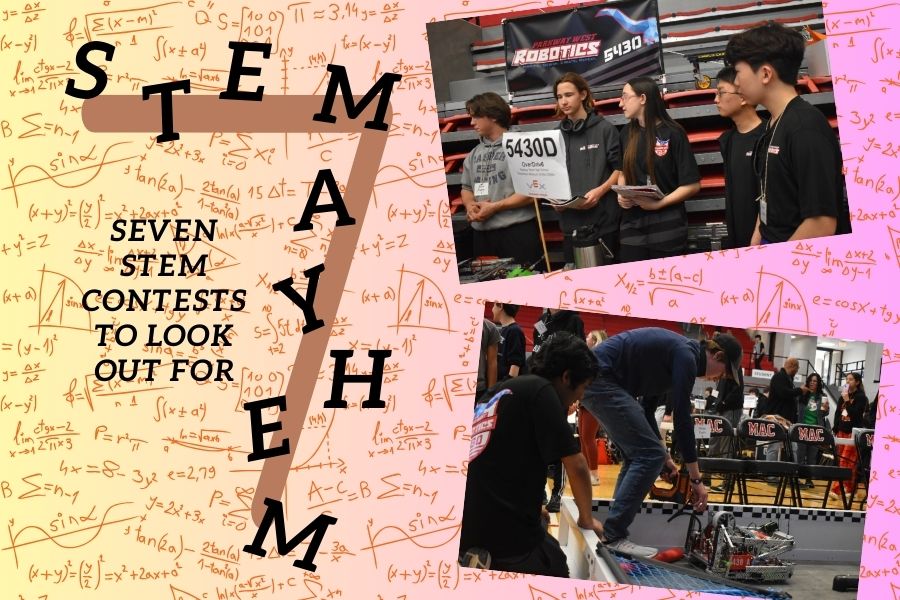
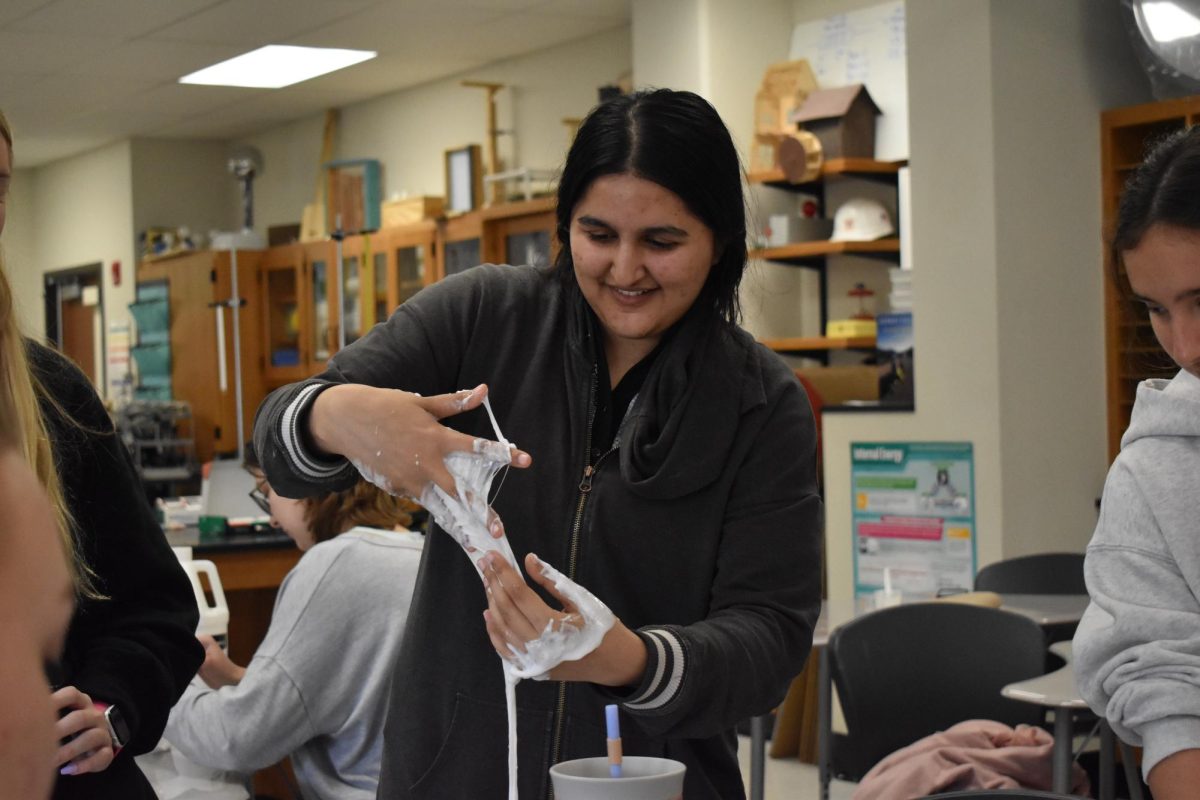
![Celebrities are inescapable in our day-to-day lives, constantly reminding us of whatever is newest in their lives. And for us on the receiving end, we find ourselves devoting time and effort to vie for just the tiniest sliver of their attention. “[Taylor Swift] is my favorite celebrity, and to me she means someone who is kind, smart and caring,” junior Swati Kumar said. “I feel connected to her and her music; I listen to her everyday and I find [her] very relatable.”](https://pwestpathfinder.com/wp-content/uploads/2024/01/Parasocial-1.jpg)

![Marching in front of Forest Park Avenue, protesters gather in support of the pro-choice organization Planned Parenthood after the controversial overturning of the Supreme Court case Roe V. Wade. Parkway West alumna Luisa Larinizi, former co-president of the Feminist Club, attended the protest in 2022 to share her voice on the matter. “I went because it’s an issue I care about deeply and I felt this was a way I could help and actively be involved. It is very important to stand up for what we believe in, and peaceful protesting is always a great way to achieve that,” Lazarini said. “It was incredible to see how many people came. Many gave speeches on their personal experiences with reproductive rights, [giving] me new insight on how many people are actually affected by the issue.”](https://pwestpathfinder.com/wp-content/uploads/2024/01/Untitled-design-1.png)
![Since its introduction and subsequent explosion on the world stage, social media has proven to be a detriment to the fight against misinformation and fake news in the media because of its targeted marketed tactics and abuse of unified communities. This being said, taking responsibility over what you consume online and deciding whether or not it’s true is crucial. “It’s important to notice that [the spread of misinformation through social media] is happening, and as a teacher, media literacy is so important to teach,” journalism teacher Lindsey Katz said.](https://pwestpathfinder.com/wp-content/uploads/2023/11/nov-editorial-feature-1200x800.jpeg)

![According to the American Academy of Child and Adolescent Psychiatry, in the United States, 90% of teenagers have used social media. In an increasingly digitized world, it can be difficult to figure out where to draw the line between your personal life and what you post. “The most influential people, your parents or your principal, would they be alright with what you were doing if they [were] sitting right next to you?” physical education and health teacher Jessica Wheeler said.](https://pwestpathfinder.com/wp-content/uploads/2023/10/IMG_9904-1-1200x799.jpg)

